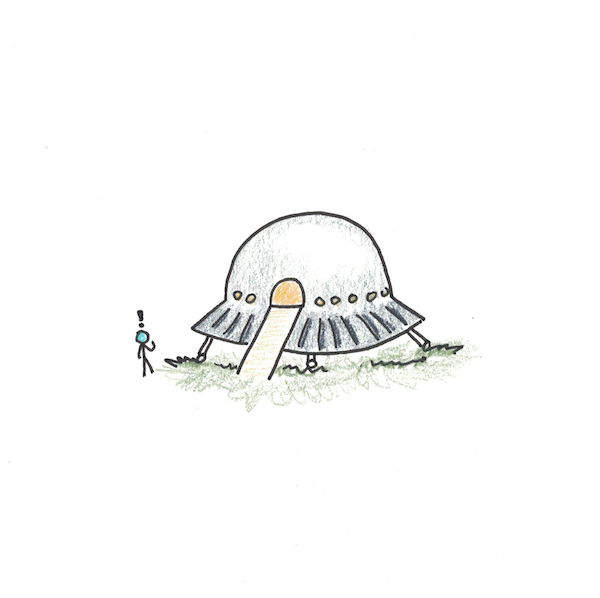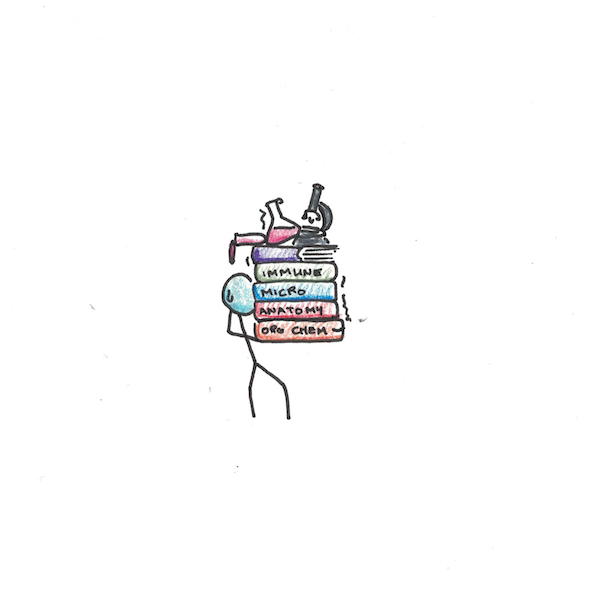Recently, I’ve had an interest in learning more biology. Some of that curiosity is pandemic-inspired. Biology is playing an outsized role in all of our lives these days.
Yet much of the interest predates our current crisis. As a teenager, I really enjoyed books like The Selfish Gene and The Red Queen. Evolutionary biology revealing a hidden pattern in the universe.
Last year, I stumbled across a course in Systems Biology taught by Uri Alon. Biology is often portrayed as something unfathomably complex. Yet this course showed it in a different light—clever systems for performing particular functions.
My favorite example involved Type II diabetes. Why do we suffer from this? The answer, it turns out, is a downside of an otherwise ingenious design:
- Our body needs to maintain stable glucose levels. Too little and our cells run out of energy. Too much, however, is toxic.
- Insulin moderates these glucose levels, being produced by the pancreas.
- Yet the insulin levels needed per person range by orders of magnitude. How can our cells both produce enough insulin to respond to momentary fluctuations, but also cross the vast ranges long-term?
- The answer is that when we need more, our pancreatic cells multiply to accommodate the demand.
- But herein lies the problem. With exponential growth, there’s always the chance a cell will mutate and incorrectly sense the glucose levels. If it senses the level is too high (even when it is normal), it will rapidly out-divide the normal-sensing kind. This, in turn, would lead to too much insulin, and kill us.
- To prevent out-of-control mutants, then, our body has a safety switch. If a pancreatic cell senses the glucose level is way too high, it assumes something has malfunctioned and the pancreatic cells self-destruct. The problem is that with our modern, sugary diet, this safety value is more likely to accidentally fire and so we end up with more diabetes.
Biology is full of interesting designs like this. The immune system is another. How do you create a system that can recognize any possible foreign invader, but ignore all of your own cells? The answer is ingenious, yet comprehensible.
Exploring The Spaceship
Bert Hubert provides the perfect analogy for describing why biology ought to be fascinating:
Imagine a flashy spaceship lands in your backyard. The door opens and you are invited to investigate everything to see what you can learn. The technology is clearly millions of years beyond what we can make.
This is biology.
This analogy neatly links biology with one of my other interests, computer science. Our world is increasingly driven by computers. Understanding code, even if you’re not paid to write it, is increasingly going to be something we all need to make sense of the world.
But biology and computer science aren’t so different. They both involve systems based on information, transforming inputs into outputs and dealing with problems of design. The difference, it seems, is that computers are man-made while biology isn’t.
Practical Upsides of Learning More Biology
Beyond the intrinsic interest, there’s practical benefits to knowing more biology. Every day we make decisions about what food to eat, which medicines to take and weigh the risks of different impacts on our bodies.
Yet misinformation is prevalent. At best, a failure to understand biology means we waste time and money on diets that don’t work and eschewing products that do no harm. At worst, ignorance leads to illness.
As a citizen, biology intersects politics. Which vaccines should we approve? Are GMOs safe to eat? Gene editing, life extension, DNA patents are new problems where laws are still being written. If we decide badly, as a society, we may cause incalculable harm both from delaying progress or enabling disaster.
Philosophically, biology teaches us deep lessons about ourselves. Questions of identity, ontology and even consciousness are informed by the inner workings of what makes us up. I don’t think you can pretend to care seriously about these questions if you’re not willing to look under the hood.
What Makes Biology Hard to Learn?
Having explained why I’m interested, let’s shift to the titular question: what’s the best way to learn it? In particular, why does biology often fail to inspire and why is it often a struggle to understand?
James Somers articulates the problem:
I should have loved biology but I found it to be a lifeless recitation of names: the Golgi apparatus and the Krebs cycle; mitosis, meiosis; DNA, RNA, mRNA, tRNA.
…
In biology class, biology wasn’t presented as a quest for the secrets of life. The textbooks wrung out the questing. We were nowhere acquainted with real biologists, the real questions they had, the real experiments they did to answer them. We were just given their conclusions.
I suspect the problem with learning biology has two parts:
- The subject is dense. Biology combines the conceptual difficulties of physics with the voluminous details of a foreign language. Classes require understanding differential equations, as well as the alphabet soup of protein, gene and cell types.
- Because it is dense, teachers work hard to drill in the facts. There’s little time for curiosity-driven puzzle solving when you have to memorize a map like this one.
Dense subjects also tend to be more opaque. A reasonably smart lay person can open up a random social psychology paper and roughly understand what is being talked about. Yet even with a PhD, papers in biology or physics can be hard to follow if you leave your specialization.
When the scholarship is hidden behind years of prerequisite classes, it can be a formidable barrier to self-education.
How Should I Learn Biology?
Until this point, my biology education has been haphazard and scattershot. I’ve read a lot of books. I’ve taken a few courses. But if I were really interested in going further, what should I do?
Here’s some options:
- Go through a standard curriculum, MIT-Challenge-style. This is a little harder given that biology is less well-supported with free material than computer science. But textbooks are always available, so following a rough curriculum should work, even if I’m not able to do all the tests.
- Pick a subtopic and dive deep. I could begin with a particular interest in mind, say DNA computers or neuroscience, and build outward from there. Along the way, I would probably get a lot of basics by backwards chaining the prerequisites.
- Visit labs or conduct home experiments. The risk of an entirely theoretical approach is that biology isn’t just a body of theory, but a lot of methods to get results. While taking on a full-time lab position isn’t an option for me, perhaps my approach to learning ought to explicitly include more time spent doing biology.
These are some initial possibilities, but I’m interested to hear from you. I know a lot of doctors, researchers and bio-majors follow this blog. What do you suggest for learning the field? Are there textbooks, online courses or guides you would recommend? Please share in the comments!





 I'm a Wall Street Journal bestselling author, podcast host, computer programmer and an avid reader. Since 2006, I've published weekly essays on this website to help people like you learn and think better. My work has been featured in The New York Times, BBC, TEDx, Pocket, Business Insider and more. I don't promise I have all the answers, just a place to start.
I'm a Wall Street Journal bestselling author, podcast host, computer programmer and an avid reader. Since 2006, I've published weekly essays on this website to help people like you learn and think better. My work has been featured in The New York Times, BBC, TEDx, Pocket, Business Insider and more. I don't promise I have all the answers, just a place to start.